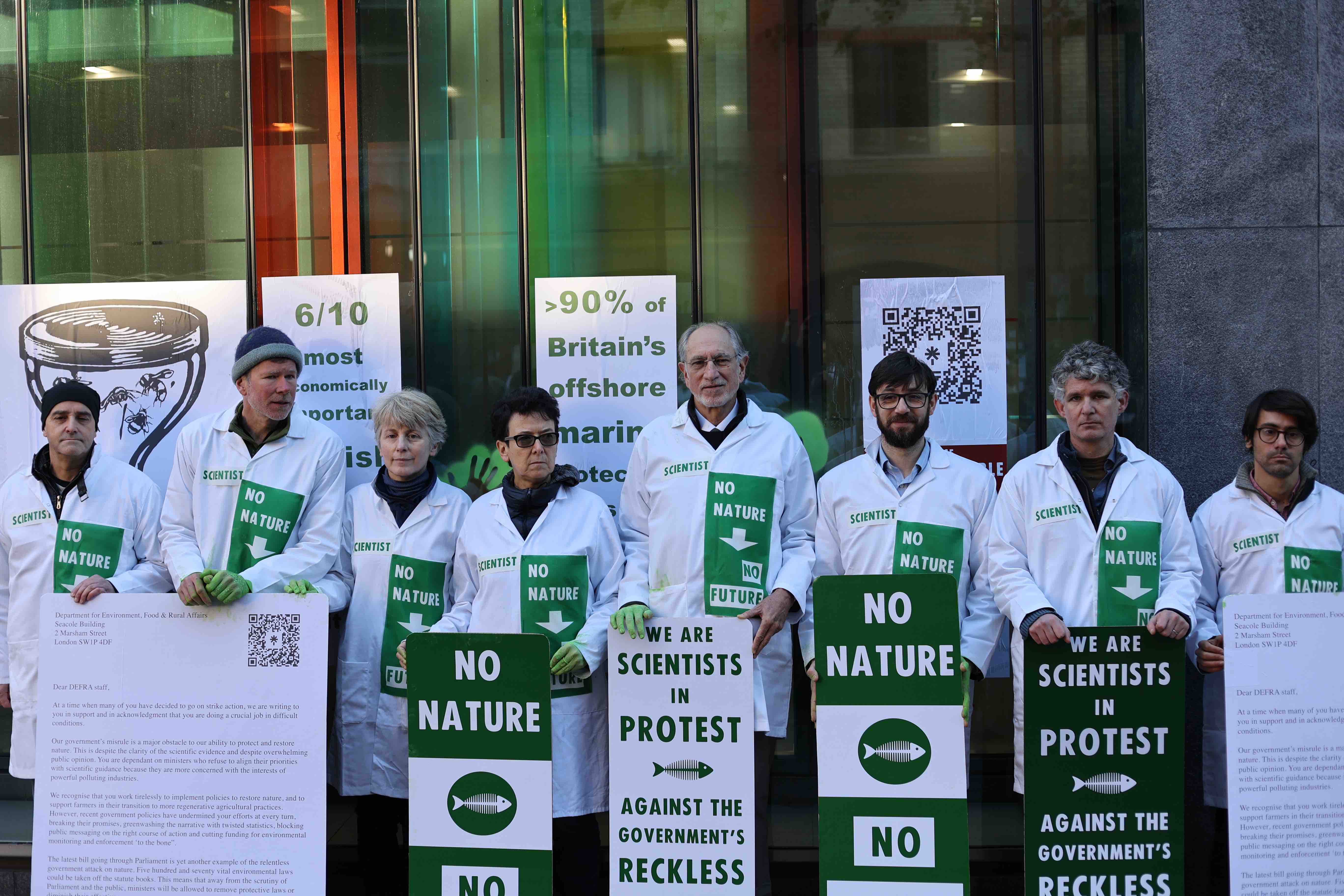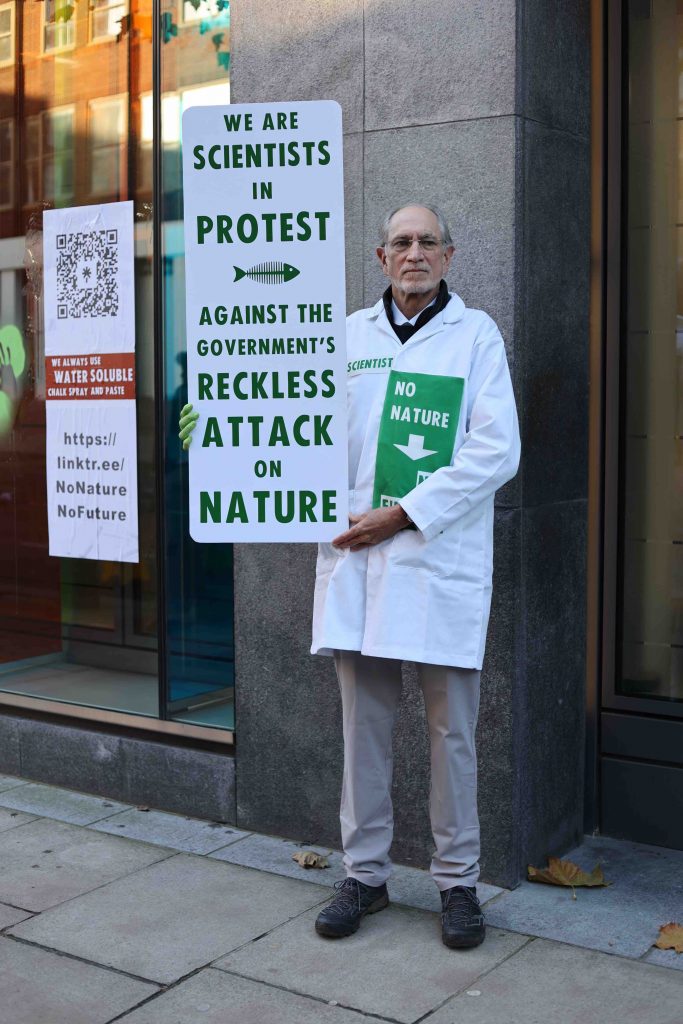Seen any sparrows recently? Extinctions warning taken to government's front door
Protesting professor warns loss of nature is not being taken seriously
Friday, 2nd December 2022 — By Tom Foot

Scientists take their protest to Defra [Neal Haddaway]
A FORMER government advisor risked arrest this week in a “no nature no future” protest which warned of a dramatic decline in species and precious habitats.
Professor Jeff Waage OBE, who lives in Kentish Town, was part of a group of Extinction Rebellion scientists pasting posters on the windows of the Department for Environment, Food and Rural Affairs (Defra) on Friday.
The ecologist, who used to work on Defra’s science advisory committee, said the government was misleading the public about the extent of decline – and that it could already be seen on Hampstead Heath.
“Habitat and species-loss looms large, and nature-loving citizens need to hear the truth,” Professor Waage told the New Journal.
“The government and Parliament declared an ecological and climate emergency, but the ecological side of it is not so often talked about. There has been a huge decline in nature in Britain. A growing number of species are at risk of extinction: a quarter of our British mammals, a third of amphibians. Bees and butterflies are down by 30 per cent.”
He added: “The government is profoundly failing to prevent this.”
Recommendations made by a “climate assembly” – a forum for public debate favoured by Extinction Rebellion – have so far been ignored by government. The campaign group is also concerned about watered-down legislation being drawn up to supersede more than 570 EU regulations.

Professor Waage [Neal Haddaway]
Professor Waage, who is an ecology expert at the Heath and Hampstead Society said: “Extinction is a one-way street. Butterflies … we really can lose these things permanently. “We are already one of the most nature-depleted countries in the world.”
Professor Waage said the Heath was not immune to the threat of pollution, pesticides and a lack of planning regulations along with excessive building work.
He said: “I do a lot of biodiversity work on the Heath. We have about 50 species of breeding birds and we have lost 30 of those species in the last 30 to 40 years. “We used to be the hedgehogs capital of London, but those numbers are declining.
“How many sparrows and starlings have you seen recently? The Heath is a refuge, but it is also under threat.”
He suggested the public could help by “linking up” places like Waterlow Park and Adelaide Nature Reserve through planting techniques. Practical advice for residents including putting up bird feeders and making holes in fences and walls for hedgehogs.
He said: “Nature keeps us all alive. Seeing birds, walking on the Heath. That is a mental health benefit people can enjoy in our own homes. “Sometimes you have got to just put a hole in the fence to let a hedgehog through. A hedgehog is a bit like a Trojan horse – if it can get in then every species can.”
Professor Waage, 70, said he was yet to be arrested but he was “happy to be and so are the other scientists who turn up particularly the younger ones”.
A government spokesperson said: “We are committed to halting the decline of nature by 2030 and will not undermine our obligations to the environment in pursuit of growth.
“A strong environment and a strong economy go hand-in-hand. “We have legislated through the Environment Act and will continue to improve our regulations and wildlife laws in line with our ambitious vision.”